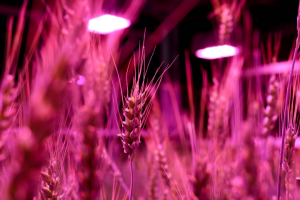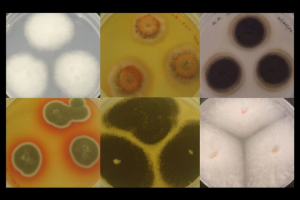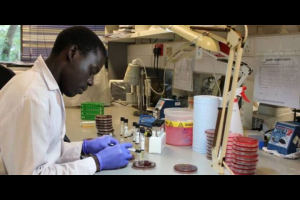There is an ethical imperative for researchers to share data, but it must be done in a way that satisfies legal, ethical and social requirements. In South Africa, there is growing concern about the governance of data sharing. Ciara Staunton, identifies and discusses the challenges and opportunities of sharing health research data.
Accelerating crop growth could help improve concerns over global food security. Researchers have created a new tool that could improve the growth rate of crops, shortening the crop generation time and accelerating breeding. Dr Oluwaseyi discusses this new approach, called ‘Speed Breeding’, and explains how this could benefit a growing population.
Researcher, Eric Ogola, applied for the Africa India Mobility Fund (AIMF). He shares what he learnt during his month in India working with Dr Yogesh Shouche, the director of the National Centre for Microbial Resources. He hopes that the collaborations and relationships formed will open up opportunities for future mutual research and better understanding of the problems shared by India and Africa. Here’s Eric’s story.
The Africa India Mobility Fund (AIMF) is a two-year programme designed to provide researchers from Africa and India with opportunities for short visits to explore opportunities to strengthen research and innovation capacity and knowledge exchange, as well as build scientific collaborations. John Osei Sekyere, PhD, University of Pretoria, shares his experience of working with world renowned scientists and the skills he has gained thanks to this opportunity provided by AIMF.
Following on from Patrick Kobina Arthur’s account of his battle to remove a fungus from his window frame leading to an investigation of its potential as a promising new antimicrobial, we now hear from reviewer, Peter Mbugua Njogu, University of Nairobi. Peter discusses the contribution of fungi to the medical field and why the research article by Kobina et al., is a ‘great contribution to drug discovery and the development of novel antimicrobial compounds’.
As part of our Open Access Week campaign, we interviewed Dr. Fredros Okumu, Director of Science at Ifakara Health Institute in Tanzania and an Associate Professor at University of Witwatersrand. Dr. Okumu solely relies on freely accessible research. In this Q&A, he talks about the open access revolution and why only though liberating information and free access to knowledge will we see exponential gains for researchers and the public.
As part of our Open Access Week campaign, we spoke with Professor Sameer Jaffer Hameer from the Technical University of Kenya, School of Aerospace and Aviation Engineering and School of Electrical and Electronic Engineering.
Prof Hameer shared his experiences with accessing research and teaching materials, as well as his thoughts on the future of publishing on the African continent.
The role of serendipity in the pursuit of antimicrobials. A chance discovery of a fungus growing on a window frame outside researcher’s, Patrick Kobina Arthur, home in Ghana, spurred an ongoing battle to remove the organism eventually leading to an investigation of its potential as a promising new antimicrobial in the fight against pathogens.
Sandra Ofori and Omosivie Maduka evaluated the association between cooking fuel use and the risk of respiratory disease among rural communities in Nigeria. In this blog, they discuss their research article published on AAS Open Research, covering the potential hazards of cooking fuels on indoor air pollution, and the negative affect this has on respiratory health.
Dr. Moses Alobo, programme manager at Grand Challenges Africa discusses one of the networks recent launches, the transition to scale for innovations programme, and explains how it can help drive societal impact.









